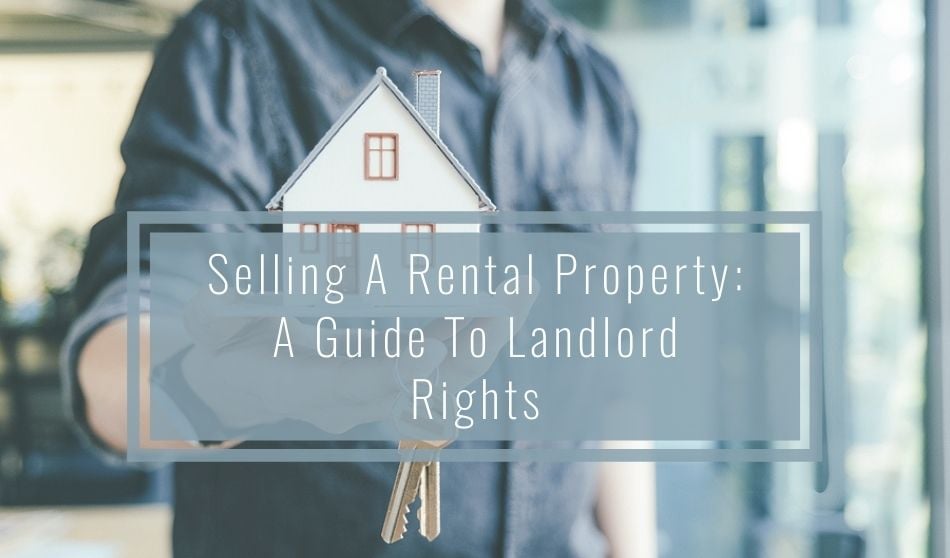
There may come a time when working as a landlord that you decide it is time to move on from some of your properties. Whether you’re tired of managing that particular property or you feel that your investments are better placed elsewhere, selling rental property may soon be a priority on your to-do list.
Figuring out how to go about selling a rental property, with or without tenants involved, can be a bit confusing if you haven’t handled this situation before. I’ll share a few tips as a guide to landlord rights while selling rentals to help you make it through with ease.
#1: Marketing An Occupied Property
Many landlords falsely believe that they have to wait until their tenants move out to start fully marketing a property, but that is not the case. When you are ready to start marketing, you simply need to make sure that you are always giving your tenants the appropriate notices.
First, you will want to let the tenant know that you are going to be putting the property on the market. Be sure to clarify if it is possible that they will get a new landlord or if you will only accept sale terms for after they move out.
Next, alert them about your plans for showing the property. State and local laws require that you give your tenant a certain amount of notice for all property showings, and this notice time should also be clarified in your lease terms. This notice is particularly important if you are renting to tenants via any low-income programs, as there are often special requirements for the notice.
Finally, make yourself available for all questions that your tenant has about the sale and the showings. Not giving them the space to ask questions could cause communication problems, and that is something that you want to avoid.
#2: Selling An Occupied Property
Another commonly held misconception is that you cannot sell a rental property that has tenants living in it. Unless the terms of your lease forbid it, however, it is perfectly acceptable to list and sell an occupied rental property.
When selling a rental property with tenants, the tenants will either need to agree to move-out early on their own terms or you will need to sell to an owner that is willing to take over the active lease. The security deposit and lease terms will be transferred over to the new owner, and ideally, the tenant would agree to this transfer.
If you prefer to wait until the property is unoccupied so that you can stage it to attract higher offers, that is also okay. In the end, it’s up to you.
#3: Early Move-Out Incentives
If you prefer to market an empty property or have not had any luck finding a buyer for an occupied rental, you may want to see if the tenant is willing to move out early. Many tenants will not be happy at the idea of leaving, but others can be offered incentives to close a move-out deal.
There are a few common offerings that landlords have used to compensate tenants for the inconvenience of moving out early:
- Cash for keys: offer a lump sum for the tenant to move out early
- Moving costs: cover the complete moving costs, which they would end up needing to pay if they wait out the lease
- Security deposit: help the tenant cover their new rental security deposit and first month’s rent
- Offer any number you can afford
Ultimately, it is up to you to decide what is reasonable to offer to the tenant as a bonus incentive to move out early. Remember, you cannot try to force or trick the tenant into leaving early, but there is nothing wrong with giving them beneficial offers that they can decide about themselves.
#4: Consider Early Termination Clauses
If you are starting a new lease for a property that you know you might like to sell in the future, you may want to consider adding an early termination clause to the lease. This clause can be used to coordinate an early move-out if you decide to sell, and it would let tenants know upfront that this offer is a possibility.
Typically, these early termination clauses include all of the following information:
- How much notice must be given to a tenant if the clause will be activated, typically between 30 and 90 days
- What kind of incentive the tenant will receive based on when the clause is used
- If the tenant has the right to refuse the early termination clause or not
By adding this type of detailed information into the lease on potential sale properties, both you and your tenants will be in a better position for a future rental sale. The right lease terms can make a big difference in the sale process when you’re handling the sale of occupied rentals.





